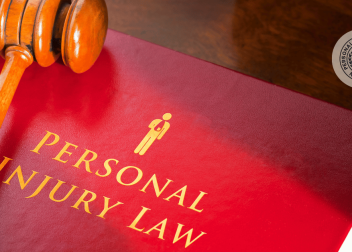Navigating a personal injury claim can feel like a tightrope, especially when relying on a lawyer to guide you. But what happens if your attorney decides to step away? Can a personal injury lawyer drop your case, and if so, why would they? The short answer is yes, but not without valid reasons and ethical obligations.
In this guide, we’ll break down the circumstances under which an attorney might withdraw from your case, your legal rights, and what steps you can take if it happens to you.
Why Would a Personal Injury Lawyer Drop Your Case?
Lawyers don’t abandon clients without cause. However, several scenarios could lead to a withdrawal:
1. Lack of Merit or Unrealistic Expectations
If your attorney discovers that your claim lacks sufficient evidence or legal standing, they may determine that pursuing it is futile. Similarly, they might withdraw if you demand an unreasonable settlement amount against professional advice.
2. Non-Cooperation from the Client
Lawyers need your active participation—providing medical records, attending depositions, or responding to communications. If you repeatedly ignore requests or refuse to follow legal advice, your attorney may drop the case.
3. Conflict of Interest
A conflict could arise if the lawyer previously represented the opposing party or has a personal relationship that compromises impartiality. The American Bar Association’s Model Rules require attorneys to avoid such conflicts.
4. Failure to Pay Legal Fees
Many personal injury lawyers work on a contingency fee basis, meaning they only get paid if you win. However, they may withdraw if you agreed to hourly billing and stop paying.
5. Ethical or Legal Violations
If a client insists on fraudulent claims (e.g., exaggerating injuries), the lawyer must withdraw to avoid participating in misconduct.
How Can a Lawyer Legally Drop Your Case?
An attorney can’t just ghost you—they must follow strict ethical guidelines:
- Court Approval (If Litigation Has Begun): If a lawsuit has already been filed, the lawyer must get the judge’s permission to withdraw.
- Written Notice: You should receive a formal letter explaining the withdrawal and any next steps.
- Reasonable Time to Find New Counsel: They must give you time to hire another lawyer without harming your case.
| Reason for Withdrawal | Is It Ethical? | What You Can Do |
|---|---|---|
| Lack of evidence | Yes | Seek a second opinion |
| Client non-cooperation | Yes | Re-engage or find new counsel |
| Conflict of interest | Yes | Hire an unaffected attorney |
| Fee disputes | Depends on contract | Negotiate or switch lawyers |
| Fraudulent claims | Yes (Mandatory withdrawal) | Reassess your case honestly |
What to Do If Your Lawyer Drops You
- Request a Clear Explanation
Ask for a written notice detailing why they’re withdrawing and whether they’ll assist in transferring files. - Find a New Attorney Quickly
Look for a lawyer with experience in similar cases. Many firms offer free consultations. - Check for Missed Deadlines
Ensure your case isn’t jeopardized by delays. The statute of limitations varies by state. - Review Any Fee Agreements
If you paid upfront costs, clarify whether they’re refundable.
Can You Sue a Lawyer for Dropping Your Case?
Only if they violated their duty, like abandoning you without notice, causing harm to your case. Otherwise, lawyers have broad discretion to withdraw ethically.
Final Thoughts
While losing legal representation is unsettling, a professional attorney won’t leave you stranded without a reason. If your case is dropped, act swiftly to protect your rights. Need a new lawyer? Research reputable personal injury attorneys to keep your claim on track.
Got questions about your situation? Share them below—we’re here to help.



